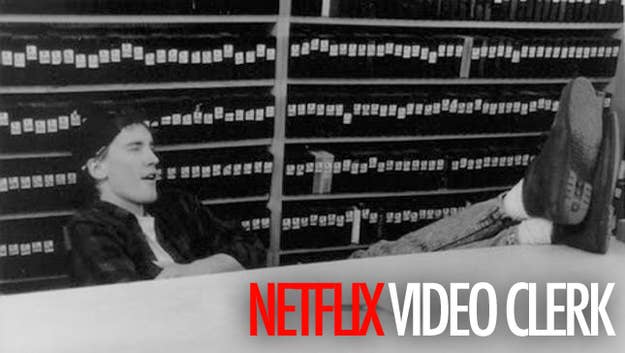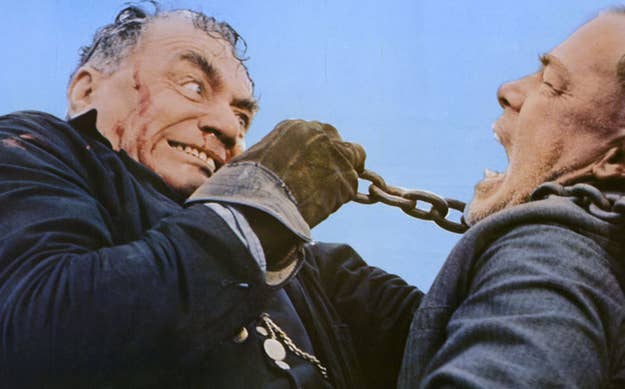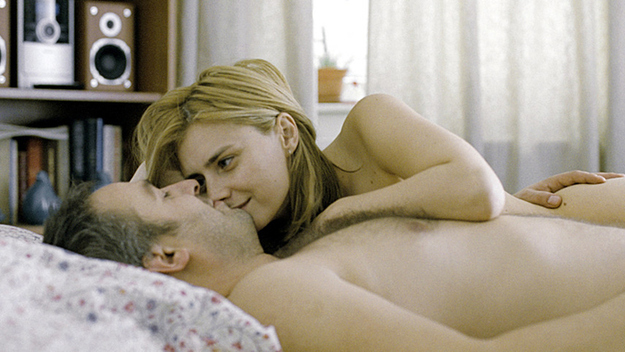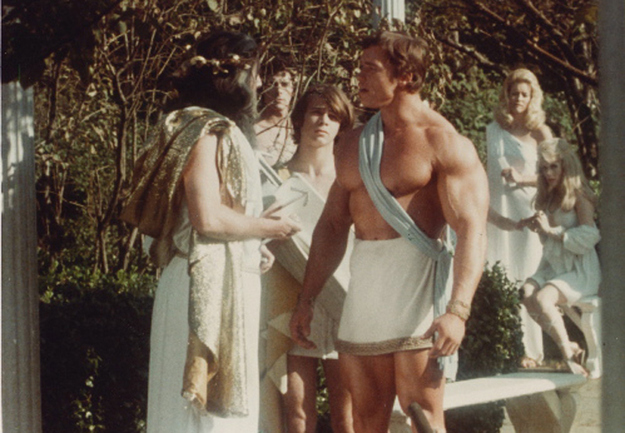
Purely by accident, this week I've picked three films with something in common — all of them, in their own ways, are about men and adversity. Two of them feature strong, confident men. The third... not so much.

If you want to see Ernest Borgnine and Lee Marvin slug it out on the flatbed of a train: Emperor of the North (1973, Robert Aldrich)
Robert Aldrich was generally not one for half measures. When he decided to make a woman's picture, the hysteria and screeching camp got turned all the way up until the final product was Whatever Happened to Baby Jane? or The Legend of Lylah Clare. When he set out to make a vulgar, offensive comedy, he pushed out The Choirboys, a film vulgar and offensive enough for screenwriter Joseph Wambaugh to disown it. And when he made man's-man action movies... well, that was his specialty, and if you don't believe me, go watch The Dirty Dozen again. Despite the popularity of Dozen, though, his tough-minded machismo may have not had a better, more striking expression than Emperor of the North.
The central conflict can be reduced to a simple logline: Borgnine is a fierce conductor who doesn't want hobos riding his train, while Marvin is a legendary hobo determined to ride Borgnine's train. (Keith Carradine gets caught in the middle as a callow young punk looking to make a reputation.) Such stripped-down characterization invites allegorical analysis, and there's plenty of space within the narrative to see it as either an Establishment-vs.-Counterculture social commentary or an arduous spiritual journey towards, ahem, What Lies North; Christopher Knopf's script, with lines like, "Turn her over, it says 'Made in Hell'," certainly seems to encourage the latter interpretation. That's all subtext, of course — the text is a grim, brutal action film, cleanly and efficiently directed by Aldrich with an emphasis on closeups and tight framing (the better to study all the consternation, pain, determination and anger on the faces of its principals). Borgnine and Marvin are terrific playing to type (seething and taciturn, respectively), while Carradine excels at playing the wild card whose sympathies seem to shift by the minute.
If I'm not making this sound appealing enough, know that the opening scene has a glowering Borgnine smashing a hobo in the head with a hammer until he falls under the wheels of his train, and the very next scene has Marvin using a live chicken as a weapon. And it only gets better from there. (Emperor of the North expires from Instant on March 31st, so take advantage while it's around. You won't regret it.)

If you want to know if there's any life left in the infidelity genre: Tuesday, After Christmas (2011, Radu Muntean)
Boy meets girl, boy and girl fall in love, boy has to decide whether or not to leave his wife for girl. It's an old, familiar story, and certainly the average moviegoer has seen a number of variations on this theme. Romanian director Muntean, with his film Tuesday, After Christmas, is smart enough here to recognize that the wheel need not be reinvented — it just needs a good oiling. Rather than get fancy with plot, he chooses a low-key naturalism as his mode and instead allows his characters to work with the kind of tiny details most would leave out. The small notes add up in this tale of a man torn between his love for his mistress and his desire to avoid hurting his wife; the body language and playful ease of the scenes between him and his lover (belly raspberries!) create a palpable intimacy, while his home life is depicted with such reflexive comfort that his dilemma becomes all too believable.
None of this would work, though, if Muntean didn't also have a terrific cast to put this across. Mimi Branescu is convincingly conflicted as Paul, the man in question, while Mirela Oprisor and Maria Popistasu, as his wife and mistress respectively, both prove to be appealingly attractive options. Oprisor, eventually, becomes the true MVP — when given the Big Scene after Branescu comes clean in the most graceless way possible, she reacts not with histronics but with cold, hard composure. Her refusal to melt down makes the emotional impact connect that much harder; when she spits out, "You're a huge disappointment to me," she might as well have stabbed Branescu in the face. Yet, when she does finally crack and let the tears come, she quickly regains her composure and goes for a cigarette, at which point he instinctively offers her a light. That's the beauty of the film in a nutshell. Tuesday, After Christmas breaks no new ground, but it feels more honest — and thus more affecting — than most films can even get within shouting distance of.

If you want to see the humble beginnings of one of our most famous stars: Hercules in New York (1969, Arthur Allen Seidelman)
"I AM HERCULES." So sayeth Arnold Strong as his preferred way to end any philosophical disagreement. You know him, of course, as Arnold Schwarzenegger, and damn but doesn't part of me hope he still occasionally bellows that out in the heat of an argument. Hercules in New York was the big man's first big role as the title character; it says something about the producers that all they could think to do was team him up with a third-tier Borscht Belt schmuck (Arnold Stang) and hope something magical happened. Not much did, but New York is still worth a watch for an early peek at Schwarzenegger. Even poorly dubbed, he still has an easy, slightly goofy magnetism and an undeniably imposing physical presence; Seidelman, naturally, leans a lot harder on the latter than the former — Hercules whips his shirt off to display his giant torso at any provocation, even if said shirt is a double-knit white turtleneck, and gets into fracases whenever the film's energy level flags (e.g. all the damn time).
The broad-as-a-bastard humor of jabberjaw Stang helps the film's cause none, yet there are still plenty of laughs to be had with the addition of cheap beer and a few friends. The Peplum-in-the-Park rendition of Mount Olympus is consistently chuckle-worthy, and Hercules' confused literalist reading of everything he hears on his journey (leading one character to exclaim, "You got chicken fat in your head?") doesn't wear out its welcome like I expected it to. Best of all is when Arnold, riding in a carriage in Central Park with a lady whom I think is intended as a love interest but never quite gets developed that far, jumps into a tangle with an escaped zoo bear. Said bear is portrayed by not by an actual bear, of course, but by a man in the saddest bear suit you've ever laid eyes upon). If nothing else, Hercules in New York proves that even the gods among us have to start out as mortals. (This gets pulled from Instant on April 1st, so get watching.)
